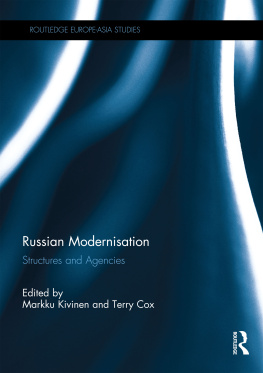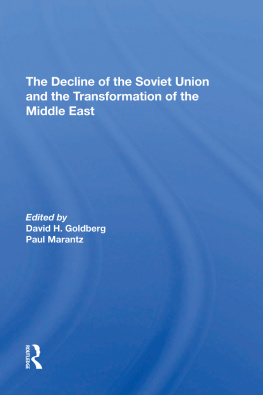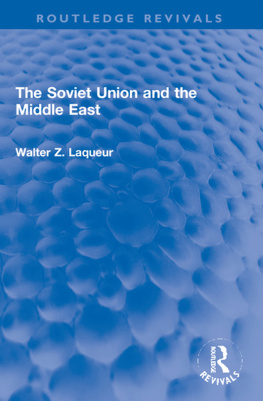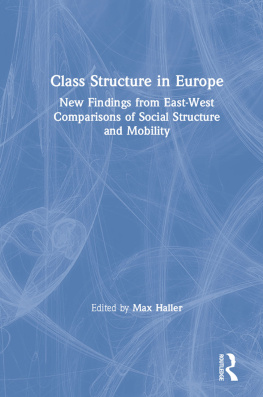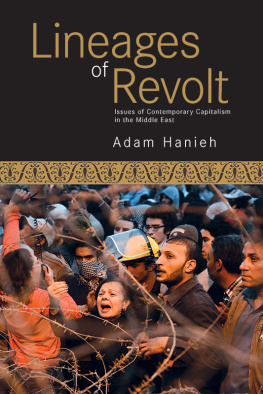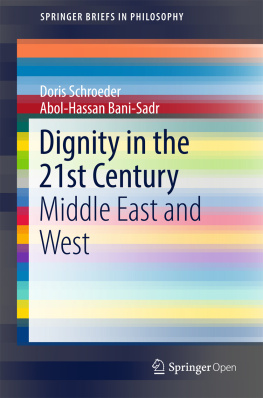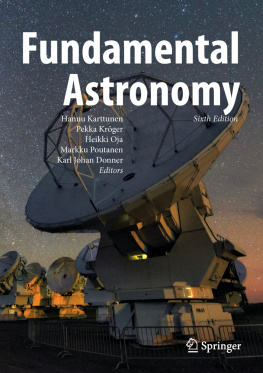First published 1998 by Ashgate Publishing
Reissued 2018 by Routledge
2 Park Square, Milton Park, Abingdon, Oxon, OX14 4RN
711 Third Avenue, New York, NY 10017, USA
Routledge is an imprint of the Taylor & Francis Group, an informa business
Copyright Markku Kivinen 1998
All rights reserved. No part of this book may be reprinted or reproduced or utilised in any form or by any electronic, mechanical, or other means, now known or hereafter invented, including photocopying and recording, or in any information storage or retrieval system, without permission in writing from the publishers.
Notice:
Product or corporate names may be trademarks or registered trademarks, and are used only for identification and explanation without intent to infringe.
Publishers Note
The publisher has gone to great lengths to ensure the quality of this reprint but points out that some imperfections in the original copies may be apparent.
Disclaimer
The publisher has made every effort to trace copyright holders and welcomes correspondence from those they have been unable to contact.
A Library of Congress record exists under LC control number: 97045894
ISBN 13: 978-1-138-35078-6 (hbk)
ISBN 13: 978-0-429-43568-3 (ebk)
Alanen, Ilkka
Senior Research Fellow, The Academy of Finland, Department of Social Sciences and Philosophy/Sociology, University of Jyvskyl, Finland
Ben-Porat, Amir
Professor, Department of Behavioral Sciences, Ben-Gurion University, Israel
Blom, Raimo
Professor, Department of Sociology and Social Psychology, University of Tampere, Finland
Bystrova, Alia
Dr., Researcher, Institute of Sociology, Russian Academy of Science, St. Petersburg, Russia
B\xE4ckman, Johan
M.Soc.Sc, Researcher, National Research Institute of Legal Policy, Ministry of Justice, Helsinki, Finland
Cesnavicius, Aleksandras
Assistant, Institute of Philosophy, Sociology and Law, Vilnius, Lithuania
Chernysh, Mihail
Dr., Senior Research Fellow, Institute of Sociology, Russian Academy of Science, Moscow, Russia
Eremicheva, Galina
Researcher, Institute of Sociology St. Petersburg Branch, Russian Academy of Science
Fairbrother, Peter
Dr., Director, Senior Lecturer, Centre for Comparative Labour Studies, Department of Sociology, University of Warwick, Coventry, United Kingdom
Helem\xE4e, Jelena
Dr., Institute of International and Social Studies, Estonian Academy of Sciences, Estonia
Ilyin, Vladimir
Dr., Research Fellow, Syktyvkar State University, Syktyvkar, Russia
Kivinen, Markku
Dr., Head of Finnish Centre for Russian and East-European Studies, Finnish Centre for Russian and East-European Studies, Helsinki, Finland
Liuhto, Kari
Dr., Research Fellow, Institute for East-West Trade, Turku School of Economics and Business Administration, Turku, Finland
Melin, Harri
Dr., Assistant Professor, Department of Sociology and Social Psychology, University of Tampere, Finland
Nikula, Jouko
Lic.Soc.Sc., Assistant Professor, Department of Sociology and Social Psychology, University of Tampere, Finland
Piirainen, Timo
Dr., Assistant Professor, Department of Social Policy, University of Helsinki, Finland
Saar, Ellu
Dr., Researcher, Institute of International and Social Studies, Estonian Academy of Sciences, Estonia
Semenova, Victoria
Dr., Researcher, Institute of Sociology, Russian Academy of Science, Moscow, Russia
Slomczynski, Kazimierz M.
Professor, Department of Sociology, The Ohio State University, Columbus, USA
Solovieva, Nina
Researcher, Institute of Sociology, St. Petersburg Branch, Russian Academy of Science
Taljunaite, Meilute
Dr., Vice-Director, Institute of Philosophy, Sociology and Law, Vilnius, Lithuania
Toivonen, Timo
Professor, Turku School of Economics and Business Administration, Turku, Finland
Introduction:
Class Analysis in East and West
The Kalamari Union is a film by Finnish film director Aki Kaurismki. It tells the story of 17 men, all of them called Frank, who are trying to make their way from the working class district of Kallio in Helsinki to an upper middle class paradise in Eira. Its a hard and violent journey which begins with a hi-jacking of an underground train. However, none of the Franks make it. They all die, one by one, until only two remain. Where Eira of their dreams used to be, they take a rowing boat and set off to Estonia. Why? Because the world has changed. Paradise is true only in their dreams.
The point that Kaurismki is making in The Kalamari Union is that Finland is still emphatically a society of class differentiation. But what are the implications for Estonia or Eastern Europe in general? Are new social classes in the making in Eastern Europe? Are there signs of a withering away of class issues? How do different classes organize their lives and what kind of political strategies do they adopt in East and West?
This volume includes not only empirical analyses but also brings together different theoretical perspectives on social classes and stratification in East and West. Some of the assumptions of mainstream sociology regarding the death of social class in Eastern European are challenged in the articles. The book represents a multidisciplinary approach, providing descriptions of entrepreneurs and managers and professionals, highlighting economic, sociological and politological aspects of their situation. The class structure in East and West is analysed comparatively at different levels of class analysis.
This book has three aims:
1. To bring Eastern Europe into the class debate;
2. To bring new moral and political issues into scientific and political discussions on social structure;
3. To bring together a variety of theoretical and empirical analyses for a better understanding of the many ways in which classes and class practices are produced.
Recent sociological debates on classes have touched upon Eastern Europe only very provisionally. On the other hand, old analyses of social stratification under conditions of actually-existed socialism, are obviously more or less irrelevant in the current situations. Theories of the class structure that prevailed during Soviet socialism can be divided into three broad categories:
1. The standard Soviet view, which said that class relations in socialist society are essentially non-antagonistic and that all class differences are gradually withering away (cf. Glezerman 1949; Semjenov 1962; Rutkevich 1978).
2. The power-theoretical view on class relations of socialist society, which describes it as a society ruled by bureaucrats, the intelligentsia, or managers. In this category we have such theorists as Trotsky, Djilas and Burnham (cf. Trotsky 1937; Ticktin 1973; Djilas 1957; Burnham 1941).
3. The attempts by analytical Marxism to define socialism and state-bureaucratic socialism as specific forms of exploitation (cf. Roemer 1981; Wright 1985; Blom and Kivinen 1990).



